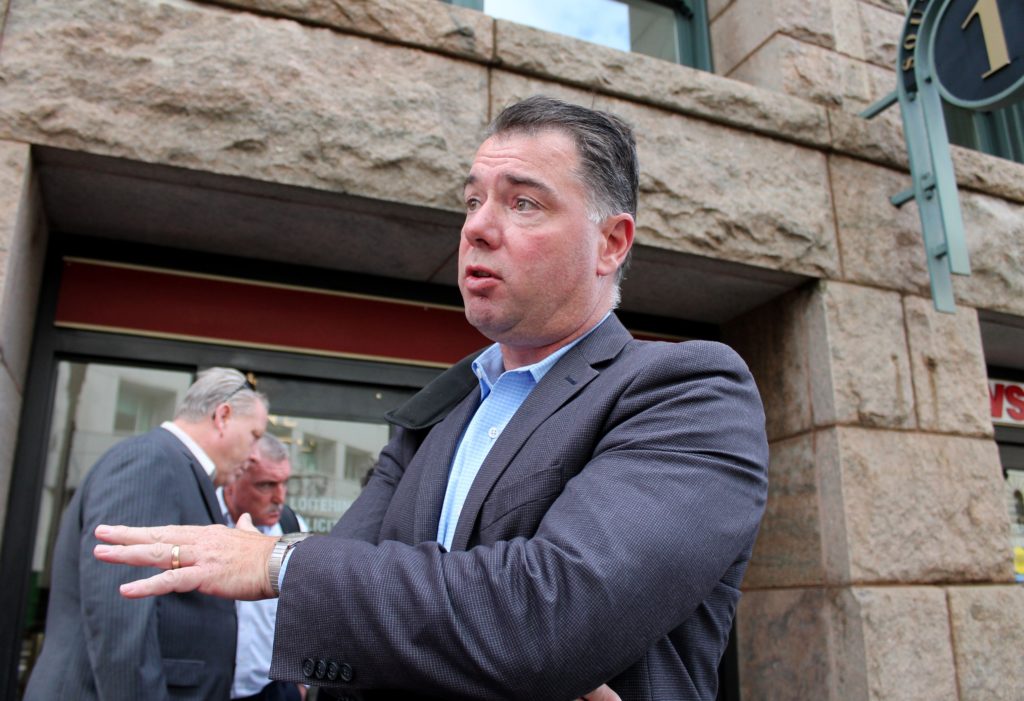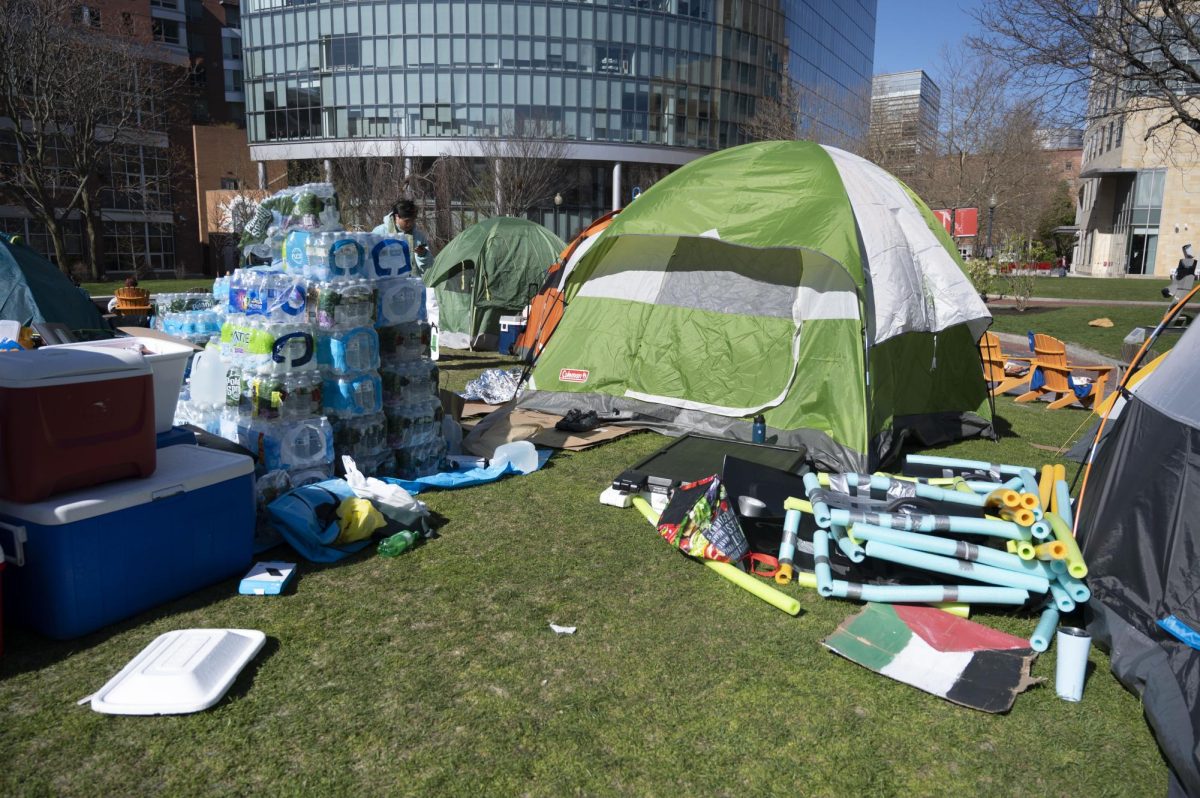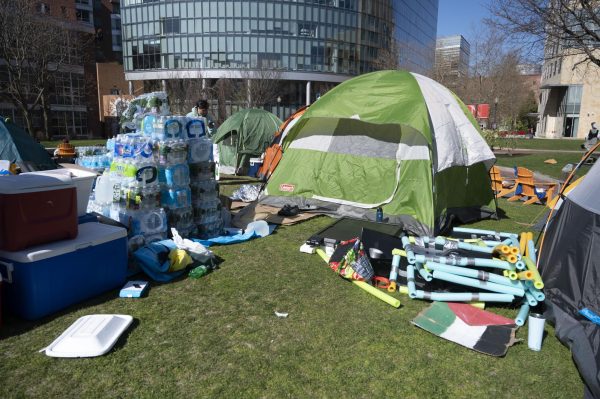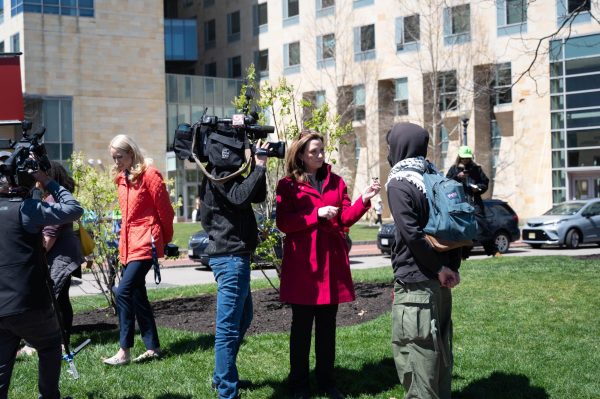National Grid lockout enters fifth month
December 5, 2018
As unionized gas workers enter the fifth month of a lockout with National Grid, the Massachusetts Legislature has decided to get involved, hoping to prevent 1,250 employees from losing their unemployment benefits in January.
Legislation aimed at delivering benefits to workers locked out by their employers during contract disputes stalled in the House Tuesday, after Republicans raised concerns about it.
On June 25, National Grid workers were officially locked out of work as the company enacted a “comprehensive work contingency plan” after the company and steel unions failed to come to any agreement during contract negotiations.
According to steel unions Local 12003 and Local 12012, which represent the gas workers, contract negotiations faltered over a number of issues, mainly those related to contracted work, pensions for new hires and changes to workers’ health care plans.
Lockouts of this scale are not very common, according to the president of United Steelworkers Local 12012 John Buonopane.
“A lot of people come up to me and ask about the strike. This is not a strike,” Buonopane said. “[National Grid] has chosen to not let its employees work. They refuse to budge, and people have been and will continue to suffer because of it.”
National Grid spokespeople said the company has bargained with Local 12003 and 12012 for years. In 2016, the union successfully negotiated a two-year contract. Company representatives and union members have met several times this year for bargaining sessions, including some brokered by Gov. Charlie Baker, but the parties have not managed to reach an agreement.
The Legislature’s decision to get involved comes just as the gas workers’ unemployment benefits are set to run out. One of the bills being considered would require the secretary of labor and the Director of the Department of Unemployment Assistance to establish a separate benefit program available to locked out workers. Benefits would continue to be provided at the same rate as traditional unemployment benefits until the lockout is resolved. The cost of the continued benefits would be the employer’s responsibility to pay.
Separately, a House legislative committee held a hearing Tuesday to review a different bill that would require National Grid itself to extend health insurance benefits for the workers during the lockout. On July 1, employees’ health insurance ended, prompting protests against Marcy Reed, who serves as the president of National Grid in Massachusetts and sits on the board of Blue Cross Blue Shield, the employees’ former insurance provider.
“These are families and children being affected,” said Joe Kirylo, president of United Steelworkers Local 12003. “I have men and women who have no way to pay their medical bills, who are scared to go to the hospital. One of our workers has a kid with cancer. He can’t afford that right now.”
The bill that would extend unemployment benefits never made it out of the House, and is currently on hold. A spokesman for House Minority Leader Brad Jones said that some members of the GOP caucus had questions about the bill, including whether it might be setting a precedent. The spokesperson also said Jones “wants to make sure those questions get answered before the House moves forward on the bill.”
National Grid customers have also reported their concerns over the lockout. In October, human error led to an over-pressurized gas line that left nearly 300 homes without utilities. In a statement, Reed said “mistakes do happen,” while locked out workers and customers complained that the error happened due to the inexperience of National Grid’s contingency workforce, which was hired to work in place of the unionized employees.
Following the Woburn incident, the Department of Public Utilities (DPU) imposed a moratorium on all non-emergency and non-compliance work across the utility’s service territory.
The DPU reported that it had found 29 instances in which National Grid may have violated federal gas pipeline safety regulations since early July, and regulators said further investigation or other action would be necessary.
The DPU also said the “information and evidence” of the alleged violations came from “concerned citizens,” though the claims overlap with a list of roughly 100 alleged violations that the unions representing locked-out National Grid gas workers submitted to the DPU.
Near the end of November, the two unions also presented National Grid with a counterproposal, making it the first official offer from the unions since the start of the lockout. While union officials declined to give specifics about the counterproposal, National Grid rejected the offer, saying that it’s up to the unions to resolve the lockout.
“They have done nothing today to get the bargaining closer to the finish line by Christmas,” National Grid said in a Nov. 27 statement. “We’ve already reached tentative agreements on many of their issues. It’s time for the unions to agree to two of ours.”
According to National Grid, it hopes to end the lockout by Christmas.


















